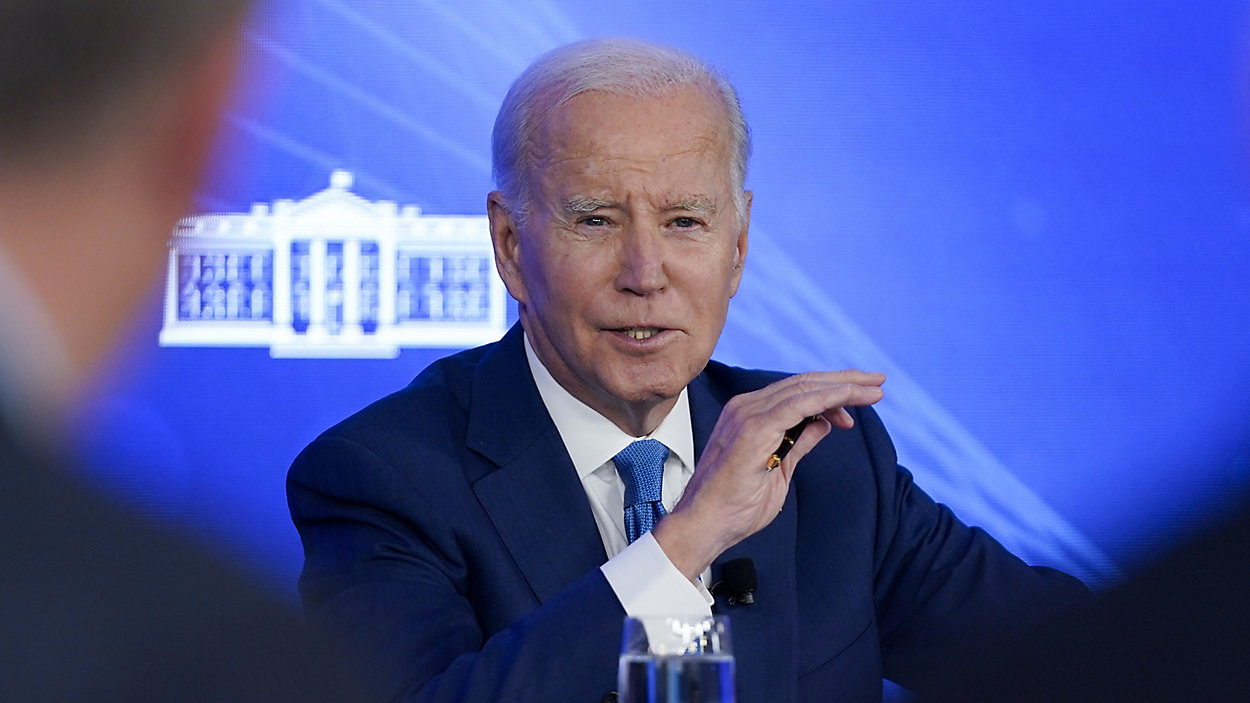President Joe Biden convened a meeting of his Council of Advisors on Science and Technology in San Francisco on Wednesday for talks on health care and artificial intelligence as Washington looks to ramp up its responses to the rapidly growing field.
What You Need To Know
- President Joe Biden convened a meeting of his Council of Advisors on Science and Technology in San Francisco on Wednesday for talks on health care and artificial intelligence
- The group was set to discuss the council’s report on patient safety released earlier this month before turning its attention to all things AI, including using the technology to predict extreme weather, create materials and better understand the origins of the universe
- The president said he is announcing “major investments” from the Advanced Research Projects Agency for Health to develop antibiotics
- Biden warned a government shutdown could impact vital work in science and health, but said he doesn’t think anything is inevitable when asked about the liklihood of one
The group was set to discuss the council’s report on patient safety released earlier this month before turning its attention to all things AI, including using the technology to predict extreme weather, create materials and better understand the origins of the universe, the council’s co-chair Arati Prabhakar said at the top of Wednesday’s meeting.
“AI has the potential to transform research,” Biden said, adding he is going to take executive action on the topic this fall so that “America leads the way toward responsible AI innovation.”
On health care, the president said he is announcing “major investments” from the Advanced Research Projects Agency for Health also known as ARPA-H – an agency he established last year hoping to spur innovation in the health industry – to develop antibiotics and fight drug resistant bacteria.
He noted a goal of putting more focus on rural healthcare and hospitals, specifically making sure healthcare workers represent those communities.
“I’ve often said America is the only nation in the world that can be defined by one word,” Biden said, telling a story about Chinese leader Xi Jinping asking him if he could define America one time when Biden was vice president. “I said yes, one word: possibilities.”
“We’ve always believed anything is possible if we set our mind to it – possibilities. And science and technologies allow us to unlock the potential as a nation and meet the challenges of our time with some sense of urgency and purpose.”
In recent months, both the White House and Congress have put an increased focus on AI as lawmakers grapple with how to regulate the field that Biden often says brings “enormous promise and risks.”
Earlier this month, some of the most powerful and best-known names in technology descended on Capitol Hill for a closed-door Senate meeting on AI that the chamber’s Majority Leader Chuck Schumer, D-N.Y., called “one of the most important conversations of the year.”
The Biden administration has released a blueprint for an AI Bill of Rights and secured commitments from technology companies to follow a set of voluntary safeguards when it comes to the technology.
Biden on Wednesday noted during his recent trips overseas, world leaders wanted to talk to him about “our leadership in artificial intelligence.” He committed to working with other nations on the issue, specifically mentioning U.K. Prime Minister Rishi Sunak who is expected to host a summit on the topic in the fall.
At the end of his remarks on Wednesday, Biden brought up the looming government shutdown. Funding is set to expire in three days without a path from Congress to keep things running currently in sight.
“If we have a government shutdown, a lot of vital work in science and health could be impacted – from cancer research, to food safety,” Biden said. “So the American people need our Republican friends in the House of Representatives to do their job: fund the government.”
Reporters then shouted questions about whether a shutdown this weekend is inevitable.
“I don’t think anything is inevitable in politics,” the president said.
He was then asked if anything could be done to avoid one.
“If I knew that, I would have done it already.”


